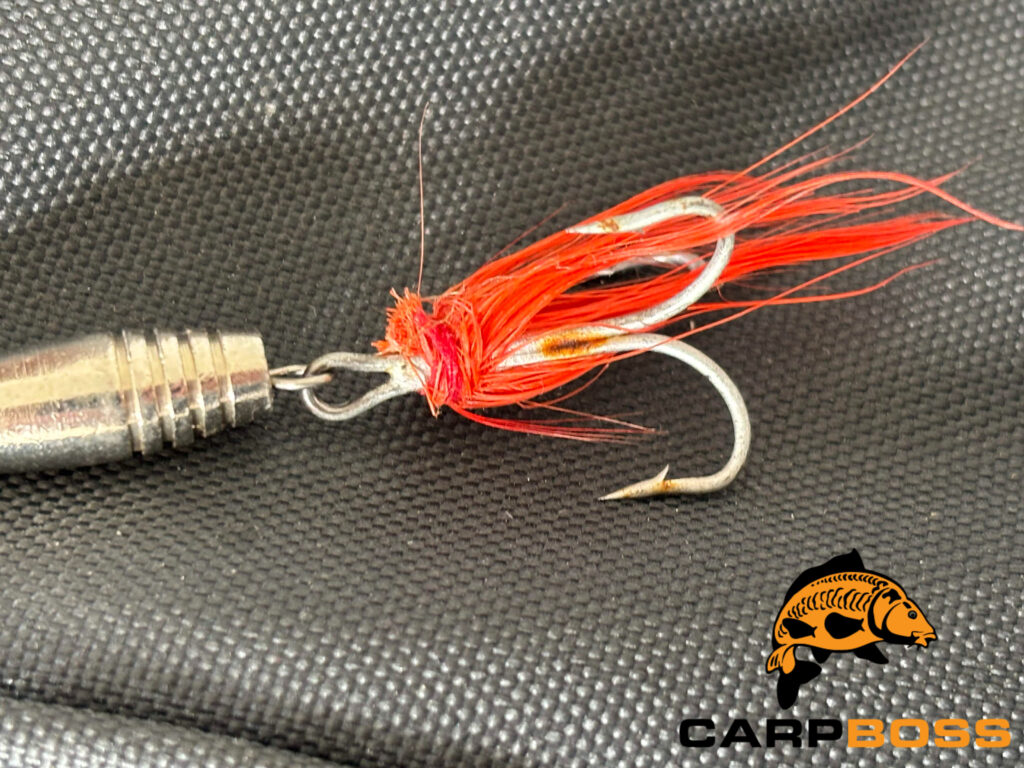Regardless of where you fish, fresh water, or salt water, you are bound to find rusty hooks in your tackle box sooner or later. This can be annoying and can happen even if you are an experienced angler, but there’s no place for concern. In the following article, we’ll discuss how to take proper care of your hooks so that the hook box is rust-free and this integral part of your fishing gear does its job in the best possible way. So get comfortable and learn how to keep fishing hooks from rusting.
Why do Fishing Hooks Rust?
Hooks are small metal components that are crucial for successful fishing trips. Since they are made of metal or steel, it’s logical that they are susceptible to the chemical process of rusting. Even the most quality hooks and the ones made from stainless steel are bound to rust sooner or later. It is a normal occurrence when this type of material comes in contact with water. That is simple the iron in the material reacting to the oxygen in the water.
The Importance of Preventing Hook Rust
These days, tackle stores sell all kinds of lures for spin fishing, and single hooks for carp fishing. Without them, any rig would be pointless so it’s important to have sharp hooks. The sharper they are, the bigger the chance that your catch will hook nicely and you’ll be able to land what might as well be your new personal best!
So if you tell yourself that new hooks don’t cost money and you can just buy new ones when the old ones get rusty, just think about the cost of corrosion the next time you lose a fish due to surface rust which prevents fish from hooking properly.
Preventing Rust on Fishing Hooks
It’s time to learn about hook rust prevention and what are best practices for having rust-free hooks. Let’s keep those lure boxes and carp hooks nice and clean!

Hook Maintenance and Cleaning
Regular maintenance of your fishing equipment after every couple of trips is key to the long life of your gear. Taking care of the hook surface is also a part of maintenance, an important one, as we previously explained.
The first step in the right direction is dry storage for your hooks. The majority of our fellow anglers who are into spinning or carp fishing have plastic storage boxes where they keep lures and hooks. Make sure these boxes are always dry.
The second step is to always properly dry your lures and hooks before putting them in the box. Storing damp hooks will lead to problems. Do this often and your cheap-quality fishing hooks will corrode in a matter of months. The same fate awaits even the best hooks on the market, it will take longer than a couple of months, but it’s bound to happen.
Using a paper towel to dry your hooks and pick up that last drop of water left in your tackle box is a good solution. Additionally, consider placing a silica gel pack into your box to pick up any extra moisture that may linger somewhere.
Using Rust-Free Hooks
Let’s make this clear. There are hooks with corrosion-resistant coatings on the market, but that doesn’t mean they can’t rust. It will just take them a bit longer than it would for the regular hooks. In the case of these, an entire hook is coated, not just the tip of it.
Other Tips for Preventing Hook Rust
Soak in White Vinegar
This doesn’t prevent rust as much as it removes it once you already have a rusty tackle on your hands. Just submerge the hooks into vinegar (you can use apple cider vinegar as well) and leave them for a couple of hours. Of course, this method takes some time, but once the acid from vinegar gets to the corrosion, you will have nice and shiny hooks once more!
Use Baking Soda and Aluminum Foil
The second tip we have requires baking soda, aluminum foil, and water. Create a thick paste by mixing the soda and water. Then, spread the paste onto the hooks and wrap them in foil. Put the wrapped hooks into the boiling hot water and you’ll be surprised how good your rusty, old hooks look now. They’ll be ready for anything, from bread bait to live bait.
Spray WD-40
WD-40 multi-use product is well known throughout the world. Mostly for its capabilities of solving problems with squeaky hinges, lubricating, and of course, rust-proofing. Just spray it on your hooks if you see that rust is starting to build up and you are good to go.
That’s all. We hope that you’ll put our tips to good use and that your bait box saw the last of the rust from fishing hooks. In case you are in need of any other advice, we suggest that you check the thread on this bass forum. The thread is old, but anglers there have some really good advice.
Tight lines everyone, keep on bossin’ and happy fishing!

Pingback: Oregon Barbless Hook Law - What Is It And Where Does It Apply? - Carp Boss
Pingback: Flat Bottom Vs V Hull for Carp Fishing - Carp Boss
Pingback: Why is Fire Tiger Lure Color so Popular - Carp Boss
Pingback: Can Fish Smell Rusty Hooks? - Carp Boss
Pingback: What are Leaders in Carp Fishing and What is Their Purpose? - Carp Boss
Pingback: Where to Fish for Barbel and Why? - Carp Boss